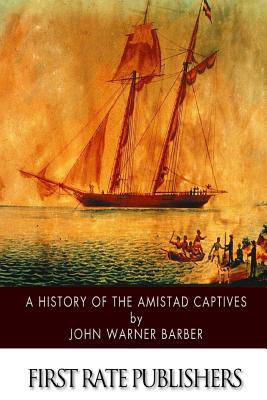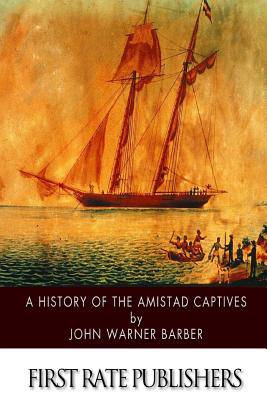
Wil je zeker zijn dat je cadeautjes op tijd onder de kerstboom liggen? Onze winkels ontvangen jou met open armen. Nu met extra openingsuren op zondag!
- Afhalen na 1 uur in een winkel met voorraad
- Gratis thuislevering in België vanaf € 30
- Ruim aanbod met 7 miljoen producten
Wil je zeker zijn dat je cadeautjes op tijd onder de kerstboom liggen? Onze winkels ontvangen jou met open armen. Nu met extra openingsuren op zondag!
- Afhalen na 1 uur in een winkel met voorraad
- Gratis thuislevering in België vanaf € 30
- Ruim aanbod met 7 miljoen producten
Zoeken
€ 10,45
+ 20 punten
Uitvoering
Omschrijving
"25,000 slaves were brought into Cuba every year - with the wrongful compliance of, and personal profit by, Spanish officials." - Dr. Richard Madden "Now, the unfortunate Africans whose case is the subject of the present representation, have been thrown by accidental circumstances into the hands of the authorities of the United States Government whether these persons shall recover the freedom to which they are entitled, or whether they shall be reduced to slavery, in violation of known laws and contracts publicly passed, prohibiting the continuance of the African slave-trade by Spanish subjects." - Henry Stephen Fox, British diplomat By the early 19th century, several European nations had banned slavery, but while the United States had banned the international slave trade, slavery was still legal in the country itself. As a result, there was still a strong financial motive for merchants and slave traders to attempt to bring slaves to the Western hemisphere, and a lot of profits to be gained from successfully sneaking slaves into the American South and the Caribbean by way of locations like Havana, Cuba. At the same time, the cruelties of the slave trade often led to desperate attempts by slaves or would-be slaves to avoid the horrific fate that they were either experiencing or about to face. In 1831, Nat Turner's revolt shocked the South and scared plantation owners across the country, while also bringing the issue of slavery to the forefront of the national debate. But just years after Turner's rebellion was quickly put down, the United States was embroiled in another similar controversy as a result of the successful insurrection aboard the Amistad, a Spanish schooner that was carrying Africans taken from modern day Sierra Leone and brought across the Atlantic to Cuba. In 1839, the Amistad was loaded in Havana with Africans who had been brought across the ocean to be made slaves, but after the ship left Havana for another location on Cuba, the Africans escaped their shackles, killed the captain, and took over the ship. When they demanded to be taken back to Africa, the ship's crew instead sailed north, and the ship was ultimately captured off the coast of Long Island in New York by the USS Washington. All of this resulted in one of the most famous maritime cases in history, and one that affected not just the international slave trade ban but also how jurisdiction over such a case was determined. While the British were interested in enforcing the ban on the slave trade, Spain wanted to protect its own rights by asserting that their property (crew and ship) could not be subjected to American jurisdiction, and that since slavery was legal in Cuba, a foreign country had no right to determine the legal status of the Africans aboard the Amistad. On top of that, both the Spanish slave traders intending to sail the ship around Cuba and the American captain who seized the Amistad claimed ownership of the Africans. The legal case proceeded all the way up to the United States Supreme Court, which eventually affirmed a lower court ruling that allowed the Africans to be returned home as free men, but not before the British and Spanish used diplomatic and political leverage to try to influence the outcome. Ultimately, the rebellion on the Amistad and the case that followed became a watershed moment in the debate over slavery and abolition in America about 20 years before the Civil War.
Specificaties
Betrokkenen
- Auteur(s):
- Uitgeverij:
Inhoud
- Aantal bladzijden:
- 28
- Taal:
- Engels
Eigenschappen
- Productcode (EAN):
- 9781502348906
- Verschijningsdatum:
- 12/09/2014
- Uitvoering:
- Paperback
- Formaat:
- Trade paperback (VS)
- Afmetingen:
- 152 mm x 229 mm
- Gewicht:
- 49 g

Alleen bij Standaard Boekhandel
+ 20 punten op je klantenkaart van Standaard Boekhandel
Beoordelingen
We publiceren alleen reviews die voldoen aan de voorwaarden voor reviews. Bekijk onze voorwaarden voor reviews.











